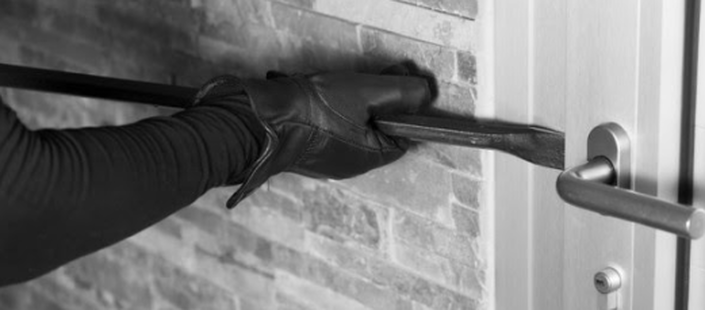|
Lately, I have been asked about Personal Umbrellas and who needs one.
Personal Umbrellas will help protect you from the rare but expensive claim which exceeds your liability limits. Umbrellas are for everyone. All of you need this policy — even if (and especially if) they're not millionaires. Do they drive? Have kids? A dog? Own rental properties? A loss can happen to anyone at any stage of their life. I bought my first Umbrella Policy when I was in my 30's, and one of my dad's friends asked why? "you don't have $1m in assets to protect. I replied I was protecting my future income. He replied, Didn't think of that, smart move. An umbrella pays for medical and legal expenses beyond homeowners/renters and auto. An umbrella sits on top of homeowners/renters and/or auto policies, adding an extra layer of coverage above and beyond those limits. Insureds may not know their current policies may not be enough when a loss occurs. Even with limits of $250,000/ $500,000, you may exhaust your limit. How much does an air ambulance ride to the hospital cost? When a covered loss occurs, the Umbrella kicks in to protect assets and pay expenses. An accident can wreak financial havoc quickly – how high will a judgment go? Anything above their homeowners/renters and/or auto policies limits will come out of their pocket. And a full 75% of folks recently surveyed said they didn't know an umbrella can protect them from financial loss, but it sure can! The critical part of the Umbrella that some people often miss is to add Uninsured and Underinsured Motorist Coverage to the Umbrella. This protects you if the at-fault party has lower limits. Your Umbrella will pay you if you need it. Send your questions to [email protected]
0 Comments
One of the most common types of personal lawsuits involves defective products--and the number of cases filed continues to grow.
In September 2021, the number of civil lawsuits filed in federal court ticked upward to more than 32,000, the highest number since December 2020, according to the Transactional Records Access Clearinghouse (TRACs), a data gathering, data research and distribution organization at Syracuse University. This number was driven largely by the number of personal injury product liability cases, TRACs said. But why would a small business or a home-based business need product liability or product recall insurance? “Small business doesn't mean small exposure," says Darryl Holmes, vice president, corporate underwriting, Selective Insurance. “A lot of people look at a small business and compare them to larger businesses but do not understand the level of exposure. Every business producing a product needs product liability, even small businesses." Half a million new businesses started in January 2021 alone, according to Salesforce.com. The majority of these new small businesses were business-to-consumer (B2C) endeavors selling everything from physical products, such as retail goods, face masks, and Etsy-style crafts and clothing, to software apps and in-person and remote services. When it comes to “home-based businesses, the discussion becomes even more complex because a lot of them may be going bare—they may not have any product liability insurance," Holmes says. “For agents, it is really important to try to educate a startup business about the importance of product liability, about the importance of having the right literature that provides labels and warnings and how to use the product because small businesses are extremely vulnerable." Despite the hard work and the good intentions that small businesses put in to manufacturing high-quality products, there is always the chance that products could fail to work properly and cause harm to a consumer. Additionally, if an insured is buying product liability coverage, they should be buying product recall coverage as well—“the two go hand in hand," says Alex Marti, product recall focus group leader - U.S., Beazley. “The product liability is going to pick up the bodily injury and property damages a product causes, while a recall policy is also going to pick up an insured's financial loss from having to remove a product from the stream of commerce, which is a costly endeavor," Marti says. “Without a recall policy they are going to be on the hook for those costs on their own." The impact of social media influencers can be hugely beneficial for a small business operating on tight margins. However, “if they have a relationship with the business and it's contractual, then that is a bigger issue than if they're just trying to influence on their own," Holmes says. “If an influencer is connected with the company, there's some vulnerability in terms of the representation. That's a verbal representation that someone can actually use against them." “One of the craziest things about product liability is a business has to anticipate how someone might misuse the product," Holmes continues. “As a product manufacturer, you have to anticipate, for example, that a detergent pod could be an attraction to children—it makes the product liability space very complex for business owners, insurers and for manufacturers as a result." Of course, when it comes to growth, an influencer can have a positive or negative impact on a business, bringing with it additional considerations for business owners. “If an insured looks like they could scale very quickly, they could see a very large additional premium charge at the time of audit," says TJ Collins, senior vice president, Amwins Brokerage of the Midwest. “I would suggest agents address this while negotiating terms with carriers, asking for free growth and tiered rating structures to help soften the blow of large growth." Selling a defective product can cause big trouble for businesses, whether big or small. credit to: Olivia Overman is IA content editor. How do you retire at age 65 when you are burdened by Student Loan Debt.
See the information below about a resource for you. Having student loans at age 65 or close to it can be incredibly stressful, but it's also surprisingly common. Education Loan Finance Inc. (Elfi) recently created a guide to help retirement-aged individuals navigate their student loan debt repayment options. Please take a look: https://www.elfi.com/how-many-seniors-have-student-loan-debt-and-where-can-they-find-help/ I hope this helps you. I was talking to a client today about his new Landlord Policy. He had recently purchased a new house and converted his Condo to a Rental Property. He wanted to know why the Landlord Policy was more expensive than his Condo H06 Policy.
I explained to him there are many reasons why the Landlord, or Dwelling Fire Policy, is more expensive. 1) Renters will come and go; some will be respectful, some may not. The insurance company has vetted the homeowner and knows they will reside in the house and maintain and take good care of it. The Insurance company doesn't know who will be there. 2) If you find a water leak, you will probably take care of it right away; a tenant may not want to bother you and not say anything until mold starts to show and floors start to buckle. My insured then asked, " I require my tenant to have Renters Insurance, won't that protect my house?" I explained that the Renters policy covers the Tenant's Liability and Personal Property, not the structure. The renter does not have an INSURABLE INTEREST in the property. You can not insure what you do not own. However, if the Tenant is negligent and causes damage, the landlord can certainly go after the Tenant through a Liability claim, but that may take a while to settle. Use your insurance to cover the loss and the file on the renter's policy. As lifestyles change, so do housing options. That’s why it can be a good idea to get ahead of your circumstances and begin organizing comfortable, suitable living arrangements for your later years. With the right planning, a transition to a new home is less expensive, more controlled and free of stress.
When to go Whether or when to move out of home will depend on the individual. Over 70% of seniors above the age of 65 live in houses built before 1990. This means that many of the properties inhabited by Americans of older age demographics are unmodified for accessibility and may require improvements. When living arrangements no longer meet physical needs, it’s worth considering other options. In order to make your decision, factor in all aspects of yours or your loved one’s health. Some seniors struggle with incontinence, others with disability and some need specialist care to help deal with memory loss. Every handicap has a corresponding area of expertise. Once you’ve identified the areas where help is needed, it’s just a question of choice. You may feel some nervousness about the time to come. This is common during times of upheaval but according to the 2009 Independent Living Report by the ProMatura Group, LLC, it is worth considering that a move to senior living could prove to be a positive one. Some residents have reported, “when you become part of an independent living retirement community, you’re more likely to make new friends and try new things” and plenty of those who made a change “wish they’d done it sooner”. Where to go Once you’ve decided that a move is required, it’s time to decide where. Many Americans use the opportunity of retirement to seek sunnier pastures. In 2018 alone, over 930,000 people over the age of 60 moved states. Their top destinations included Florida, Arizona, Texas, North & South Carolina. When looking at a new destination, your best bet is online research tools, which help you to determine whether certain requirements can be met by a state’s facilities. There are a wealth of options when it comes to senior living and no two are the same. For those who are deterred by traditional nursing homes, consider ‘independent living communities’ - featuring private, separated accommodations with nearby staffing, dining and medical facilities. If your needs are more pressing, there are ‘assisted living facilities’, which provide 24/7 trained assistance to support with dining, bathing, toileting and other daily activities. Medically-inhibited patients may be interested in specialized centers for groups of people who suffer from similar symptoms (e.g. Memory care communities), ensuring round-the-clock expert assistance. How to go Good quality care can be expensive and, in order to budget for a new lifestyle, it’s a good idea to review finances. Many seniors consider selling their property so as to afford new living arrangements. The value of a house is dependent on many variables including area, size, modernity and condition. Use an online calculator to get an idea of how much you can make from selling your home. You should also find a senior-friendly realtor with experience working alongside older clients, who will understand your specific needs. Although a sold property goes some way towards a more comfortable lifestyle, it’s important to factor in outstanding mortgage balances, care costs and entitlements. The act of selling a property can, in itself, be quite expensive. Luckily, there are many online resources to assist with calculations and help navigate the prices of care facilities. Remember, this process can be treacherous if you are not properly informed, so make sure you understand costs, customs and valuations before proceeding with any important decisions. You’ll also need to factor in the cost of moving. The national average cost of moving is $970, but this number will depend on where you live, what’s being moved, and the difficulty of the move. Google “moving services near me” and then weigh reviews on local moving companies. Avoid companies who only give you an over-the-phone estimate. Transitional periods can seem daunting but, by planning ahead and understanding the full breadth of options, you can ensure a satisfactory outcome for yourself and your loved ones. Article by Hal Salazar learn more at https://elders.today/ Image by Pexels
|
David WintersIndependent Insurance Agent Archives
May 2024
Categories |









 RSS Feed
RSS Feed

